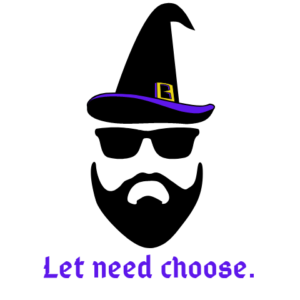As a sedative, any alcohol can make you drowsy, but some people swear that wine affects them more than other drinks. Alcohol is considered a sedative and may make you drowsy if you drink a glass of wine before bed.
Wines make people sleepy because alcohol is a depressant and because they often contain melatonin. Depressants make people sleepy, and melatonin is a common ingredient in numerous sleeping medications. Red wines induce drowsiness more effectively than white because they contain greater melatonin concentrations.
Unfortunately, even small amounts of alcohol, such as a glass of wine before bed, can disrupt sleep. Another way alcohol disrupts sleep is that it can make you pee more at night. After a few hours of sleep, alcohol can wake you up and make it hard to get back to sleep. Alcohol, be it wine, beer, or hard liquor, can disrupt sleep cycles, resulting in more waking moments and less deep sleep.
Alcohol Hinders Restful Sleep
Because alcohol reduces REM sleep and causes sleep disturbances, people who drink before bed often experience symptoms of insomnia and feel excessively sleepy the next day. Because liver enzymes metabolize alcohol, people who drink alcohol before bed often experience disturbed sleep cycles.
Drinking alcohol before bed can increase the inhibition of REM sleep in the first two cycles. If you find yourself waking up at night after drinking red wine (or other spirits), consider separating the drink from dinner by at least two hours to reduce the overlap between when the impact occurs and bedtime.
Even drinking too much wine at dinner and not drinking anything for the rest of the day, you can still leave the negative effects of sleeping before bed. A glass of wine can help you relax and fall asleep, but drinking it too close to bedtime can lead to poor sleep quality and drowsiness, not to mention a hangover, the next day.
However, it is worth noting that while red wine may be a more enjoyable alternative to melatonin for sleep, sleep quality may be reduced due to the alcoholic nature of the drink. Red wine, in particular, is a sleep-inducing substance characterized by high levels of melatonin, higher levels of alcohol, and higher concentrations of tannins.
Red Wines Induce Sleep More Effectively than White
In short, red wines are more sleepy than white wines because they have more alcohol, more melatonin, and have more sedative effects. If wine causes drowsiness and you want to avoid this side effect, you can always replace the red wine with something more refreshing, such as white or rosé. If white wine is making you drowsy, it’s most likely the alcohol’s effect, not the drink itself. While drinking white wine will definitely make you drowsy, and somewhat drowsy, this is mostly due to the sedative effects of alcohol.
If you’re concerned about drinking a beverage that will make you feel too sleepy, it’s best to stay away from red wine and consider something that’s low in alcohol and high in sugar. However, that doesn’t mean that all red wines cause drowsiness. Alcohol content may be a more important factor. Drinking alcohol can make you tired due to the alcohol content of wine (usually 10% to 15%).
There is no evidence that wine is more tiring than other alcoholic beverages. One of the effects of alcohol on the body is drowsiness, so this is one of the reasons why you may get heavy eyes after drinking wine. The alcohol in wine interferes with your brain’s ability to stay awake, making it easier to sleep, so sleepiness sets in quickly.
Drowsiness and Alcohol Consumption Are Intimately Related
Scientists believe there is a link between drowsiness and alcohol consumption, and red wine in particular contains compounds that can cause drowsiness. While the sedative effects of alcohol can cause drowsiness, it also has other effects that can affect sleep quality. Alcohol has a sedative effect that can make you feel relaxed and sleepy, but drinking alcohol, especially in excess, has been linked to poor sleep quality and duration.
Drinking alcohol to sleep can build tolerance, forcing you to consume more alcohol each subsequent night in order to experience sedation.
While much of the effects of wine depend on your tolerance for alcohol and how many glasses you’ve had, there are several ways you can reduce your chances of falling asleep before the holidays are over.
Alcohol and Its Effect on the Sleeping Cycle
The good news is that by switching to alcohol, you don’t run the risk of drinking too much, causing your brain to stop working or your memory to suffer. Replacing a regular glass of wine with something non-alcoholic reduces the risk of these negative emotions both during drinking and the next day. A glass of wine (and the alcohol you find in it) will affect your long-term and short-term memory.
There are many other attributes associated with alcohol, mainly its side effects, one of which is disruption of the sleep-wake cycle, so we will discuss why wine causes drowsiness. It goes without saying that the alcohol in wine is itself a major contributor to sleepiness.
We may not entirely know why wine makes you sleepier than other spirits—or even this wine actually makes you sleepier than other spirits—but depending on a range of factors, it may at least , it seems that this is so. After all, the study doesn’t even prove unequivocally that red wine actually makes you sleepier than other forms of alcohol. The study only shows that people feel sleepier when they drink red wine.
While alcoholic beverages like wine and beer have many sleep benefits, the best alcoholic beverages often contain spirits. One of the most notable side effects of drinking alcohol is drowsiness — the desire to sleep.
